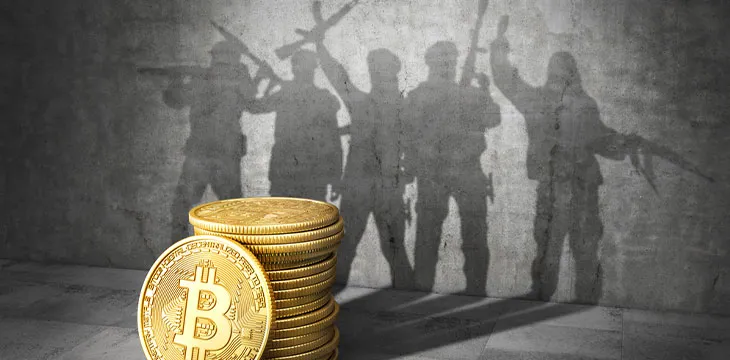|
Getting your Trinity Audio player ready...
|
Things just got real in the ongoing saga between the Office of Foreign Assets Control (OFAC) and Tornado Cash.
In August, the Treasury’s OFAC added Tornado Cash and associated wallets to its Specially Designated Nationals and Blocked Persons (SDN) list, linking the coin mixer to the North Korean regime.
Now, OFAC has announced that Tornado Cash is connected to North Korea’s nuclear program.
As if there wasn’t already enough pressure on anyone associated with the Ethereum-based mixer, it’s now official that they’re linked to a rogue nation’s nuclear program.
It doesn’t take much to imagine the legal consequences that continuing to associate with it in any way could entail.
This action is part of the United States’ ongoing efforts to limit the DPRK’s ability to advance its unlawful weapons of mass destruction (WMD) and ballistic missile programs… – OFAC
OFAC swats industry lawsuits aside and doubles down
Shortly after the initial addition of Tornado Cash to the SDN list, some in the digital currency industry filed a lawsuit saying that Tornado Cash does not fit the legal definition of an ‘entity’ as laid out in the terms of OFAC’s sanctioning authority.
Clearly, OFAC is sending a message that such legal actions haven’t changed its mind. Instead, it is ratcheting up the pressure, addressing the lawsuits directly, clarifying that “OFAC designated the entity known as Tornado Cash, which is a ‘partnership, association, joint venture, corporation, group, subgroup, or other organization’ that may be designated pursuant to IEEPA (International Emergency Economic Powers Act).”
That so-called decentralized organizations such as DAOs are legal partnerships subject to the same laws as other kinds is something Dr. Craig Wright has been yelling from the rooftops for years.
While many ‘crypto-anarchists’ in the industry mocked and ridiculed this idea, swearing that the ‘decentralization’ of smart contracts and the blockchains they run on put them beyond the reach of mere man-made laws, time is once again proving that Dr. Wright’s analysis is correct.
This is extremely serious business
It’s one thing to shill worthless tokens and cash out other people’s hard-earned money or to run an online drug marketplace. It’s an entirely different ballgame to find yourself in the crosshairs of OFAC and linked to an illegal nuclear weapons program. This sort of thing has extremely serious consequences, and Uncle Sam is not known to tread lightly when it comes to national security threats.
Once again, it must be emphasized that flagrantly violating national and international laws and thinking that inane mantras like ‘code is law‘ or concepts such as decentralization will help you is misguided at best. Money laundering is a serious crime, and when it is linked to illegal nuclear weapons programs, it could have dire consequences for all involved.
Those involved with things like mixers, privacy coins, DAOs, and other such concepts should tread carefully. Tornado Cash is unlikely to be the last domino to fall; it’s much more likely that it is merely one of the first. As regulators around the world flex their muscles and clamp down on the Wild West era that has characterized the industry so far, things are going to switch into high gear, and heads are going to roll.
Follow CoinGeek’s Crypto Crime Cartel series, which delves into the stream of groups—from BitMEX to Binance, Bitcoin.com, Blockstream, ShapeShift, Coinbase, Ripple,
Ethereum, FTX and Tether—who have co-opted the digital asset revolution and turned the industry into a minefield for naïve (and even experienced) players in the market.

 07-15-2025
07-15-2025 





